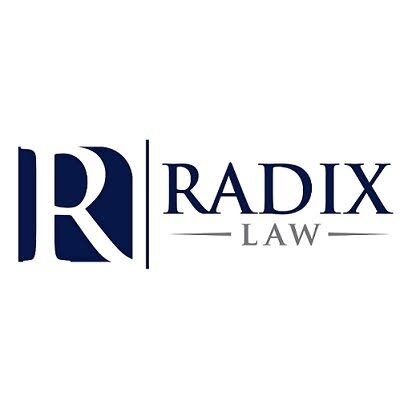Best Landlord & Tenant Lawyers in Scottsdale
Share your needs with us, get contacted by law firms.
Free. Takes 2 min.
Free Guide to Hiring a Real Estate Lawyer
List of the best lawyers in Scottsdale, United States
United States Landlord & Tenant Legal Questions answered by Lawyers
Browse our 2 legal questions about Landlord & Tenant in United States and read the lawyer answers, or ask your own questions for free.
- What is owner of condo units obligation as far as damage to the condo below their unit.
- The unit above my condo is managed by a Property Management company, and it was rented. During the time it was rented, there were water leaks that damaged my ceilings, and the Management Company. refuses to fix the ceiling so that it matches the rest of the ceiling. Even though... Read more →
-
Lawyer answer by Horus Legal Sulotion
Thank you for sharing the details of your situation. Based on the circumstances you described, you may have grounds to escalate the matter legally. You can file a case to request the appointment of a government engineer from Dubai Municipality...
Read full answer - How to protect property from squatters law
- Deed in my mom's name. She died 18 years ago. Son is named as administrator but not as owner. We live in USA so let Non relative live there for 45-50 year but had no formal contract. Let him live there free as long as he paid utilities and taxes.... Read more →
-
Lawyer answer by M BILAL ADVOCATES, CORPORATE & TAX CONSULTANTS
After completing probate to establish yourself as the legal heir, you can transfer the property title to your name and then grant them permission to reside there through a formal agreement. It is worthy to note that you can do...
Read full answer
About Landlord & Tenant Law in Scottsdale, United States
Landlord and tenant law in Scottsdale, Arizona, is a part of the state's broader landlord-tenant regulations, mainly governed by the Arizona Residential Landlord and Tenant Act. This body of law sets forth the rights and responsibilities of landlords and tenants, providing a framework for residential lease agreements, addressing issues such as security deposits, lease terminations, repair and maintenance, eviction processes, and tenant rights. As a property-centric area with a vibrant real estate market, understanding these legal nuances is crucial for both landlords and tenants to ensure a harmonious and legally compliant rental experience. The city of Scottsdale, known for its upscale residential communities, has specific local ordinances that may also affect rental arrangements, necessitating an understanding of both state and local regulations.
Why You May Need a Lawyer
Legal issues in landlord-tenant relationships can arise from various common situations that may require professional legal assistance:
1. **Lease Agreements:** Drafting, reviewing, or disputing a lease agreement requires legal expertise to ensure compliance with Arizona laws and protect your rights.
2. **Disputes Over Security Deposits:** Tenants may need legal help if they believe their security deposit was wrongfully withheld, while landlords might require defense against unfounded claims.
3. **Eviction Proceedings:** If a tenant is facing eviction, or a landlord needs to evict a tenant, legal advice can guide them through Arizona's eviction process to ensure it is lawfully conducted.
4. **Habitability Issues:** Tenants may need legal help to enforce their right to safe and habitable living conditions, demanding necessary repairs or compensation.
5. **Unlawful Discrimination:** Legal intervention might be necessary if a tenant experiences discrimination based on race, nationality, gender, or other protected characteristics.
6. **Breach of Lease:** Whether it's a tenant breaching the lease terms or a landlord overstepping the contract, legal advice is critical to resolving such conflicts.
Local Laws Overview
The Arizona Residential Landlord and Tenant Act provides the foundation of landlord-tenant law, but local Scottsdale ordinances may impose additional requirements:
1. **Security Deposit Limits:** Arizona law caps security deposits at one and a half months' rent, safeguarding tenant funds unless agreed otherwise in writing.
2. **Disclosure Requirements:** Landlords must inform tenants about habitability concerns and safety measures like crime-free housing addendums.
3. **Entry Notice:** Landlords must provide reasonable notice, typically 48 hours, before entering a tenant's unit, except in emergencies.
4. **Eviction Procedures:** The local court follows state-regulated timelines for evictions, ensuring both tenants and landlords adhere to proper notice and filing protocols.
Frequently Asked Questions
What rights do tenants have if repairs are needed?
Tenants have the right to request repairs for conditions affecting their health and safety. If the landlord fails to address the issue within ten days after being notified, tenants may be able to terminate their lease or initiate repairs and deduct the cost from their rent, following specific legal guidelines.
Can a landlord raise the rent without notice?
No, landlords must provide at least 30 days' notice before increasing rent, and rent can only be raised at the end of a lease term unless otherwise stipulated in the lease agreement.
How much can a landlord charge for a late rent payment?
Late fees are permissible only if outlined in the lease agreement, and they must be reasonable. Arizona law does not specify a maximum amount, but the fee must be in line with local standards of fairness.
What can a tenant do if their lease is terminated early?
If a lease is terminated early by the landlord without cause, tenants might seek legal recourse for breach of contract and potentially sue for damages or find assistance in negotiating a resolution.
Are verbal lease agreements valid in Arizona?
While verbal agreements are technically enforceable under Arizona law if the lease term is less than a year, written agreements are far more reliable and less prone to disputes.
What notice must a tenant give to vacate a rental property?
Generally, tenants are required to provide a 30-day notice to landlords if they intend to vacate a rental property at the end of a lease term. Specific notice periods may vary depending on lease agreements.
Can a tenant withhold rent for repair issues?
Tenants may withhold rent after following specific legal protocols if repairs affecting health and safety are neglected. However, it’s advised to consult a lawyer before doing so to ensure compliance with all legal requirements.
What steps should a tenant take if they experience discrimination?
Tenants should document all incidents, file a complaint with the Arizona Attorney General's Office, and seek legal counsel to address any potential violations of the Federal Fair Housing Act.
Can landlords prohibit pets?
Landlords can generally prohibit pets through lease agreements, except for service animals or emotional support animals, which may be protected under fair housing laws.
What can a landlord do if a tenant abandons the property?
Landlords may re-enter and reclaim possession of the property under Arizona law, following specified procedures for handling any belongings left behind by the tenant.
Additional Resources
For more assistance, individuals can consult the following resources:
- **Arizona Residential Landlord and Tenant Act:** Essential for understanding state-specific regulations.
- **Community Legal Services:** Offers free or low-cost legal aid to eligible individuals.
- **Scottsdale Housing Agency:** Provides local information and assistance regarding housing issues.
- **Arizona Department of Housing:** Provides resources on fair housing rights and tenant-landlord mediation.
Next Steps
If you require legal assistance, consider the following steps:
1. **Document Everything:** Keep detailed records of correspondence, lease agreements, and any issues encountered.
2. **Consult with a Lawyer:** Reach out to a legal professional specializing in landlord-tenant law to examine your situation and provide advice.
3. **Contact Local Legal Aid:** If cost is a concern, explore local legal aid organizations for free or reduced-cost services.
4. **File a Complaint:** Depending on the issue, you may need to submit a formal complaint with relevant agencies, such as the Arizona Attorney General’s Office for discrimination cases.
5. **Know Your Rights:** Familiarize yourself with the Arizona Residential Landlord and Tenant Act to better understand your legal standing and options.
Lawzana helps you find the best lawyers and law firms in Scottsdale through a curated and pre-screened list of qualified legal professionals. Our platform offers rankings and detailed profiles of attorneys and law firms, allowing you to compare based on practice areas, including Landlord & Tenant, experience, and client feedback.
Each profile includes a description of the firm's areas of practice, client reviews, team members and partners, year of establishment, spoken languages, office locations, contact information, social media presence, and any published articles or resources. Most firms on our platform speak English and are experienced in both local and international legal matters.
Get a quote from top-rated law firms in Scottsdale, United States — quickly, securely, and without unnecessary hassle.
Disclaimer:
The information provided on this page is for general informational purposes only and does not constitute legal advice. While we strive to ensure the accuracy and relevance of the content, legal information may change over time, and interpretations of the law can vary. You should always consult with a qualified legal professional for advice specific to your situation.
We disclaim all liability for actions taken or not taken based on the content of this page. If you believe any information is incorrect or outdated, please contact us, and we will review and update it where appropriate.










